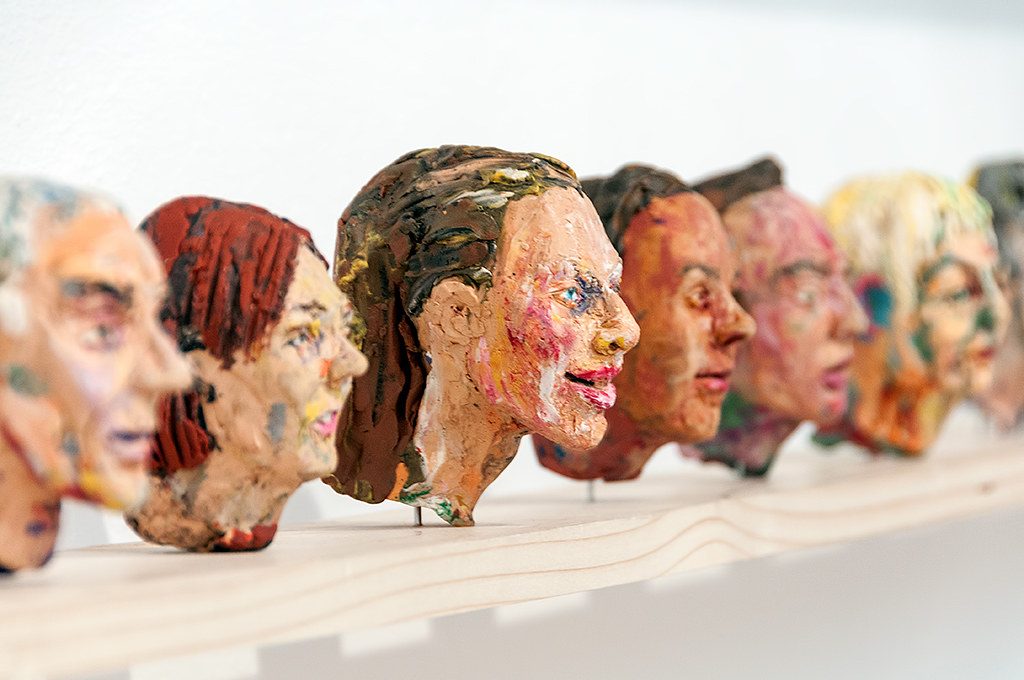Passportraits
Efrat Zehavi
2007 — present, Netherlands

2007 — present, Netherlands
Efrat Zehavi’s biography features a title that encapsulates the essence of her work: ‘Life or Theatre’. Famous words have their origin in the work of Charlotte Salomon, an artist who wove her story amidst the chaos of World War II. Caught between the absurdity of existence and the sense of alienation, Zehavi has confronted herself with this question, that has no clear answer. ‘It applies to every person I meet,’ she shares, as she weaves her own life story and those of others into an endless theatre of stories and sculptures.
Visual artist and writer Efrat Zehavi is known for the plasticine portraits she models on the spot. Her themes are origin, family, and migration. Having moved to Rotterdam from Haifa in 2001, she became fascinated by the facial variations within the 170 different nationalities surrounding her. This led her to develop Passportraits, an ongoing traveling performance.
For Passportraits, Efrat Zehavi makes plasticine portraits of people she encounters in public places like a park or library. She engages them in conversation, and while she gets to know the person opposite her, the portrait takes shape. Passportraits reflect the mix of identities that we encounter on the streets every day.
Efrat Zehavi: ‘Behind each face, there is a life story. I want to find out: where are you from? Who are you? Where are you going? For me, asking questions is the best way to counter prejudice. To avoid fearing each other. The portraits are also about overcoming my fear of others.’
With her gaze and deep empathy, Efrat Zehavi is not only an artist but also a guide through the complex textures of human existence. Her art is an invitation to push the boundaries of our understanding and embrace the diversity of life, as we find our own place in the endless and absurd theatre of existence.
Efrat Zehavi (1974) is a visual and performance artist based in Rotterdam. She is known for the expressive portraits in coloured plasticine that she makes on the spot in public locations. Efrat draws, sculpts, stages photos, makes collages and writes short stories based on oral histories. She combines her texts and artifacts in installations, performances, animations and books.
Efrat’s sculptures are painterly and narrative; they derive their power from the unmistakable imprint of her hand. She works with sculptural media like plasticine, clay, papier-mâché, plaster and wax. With these materials, she can shape her feelings and thoughts in the most direct and intuitive way, as if making a quick sketch. She depicts a wide variety of characters, from recognisable realistic portraits to theatrical masks, deformed bodies, mythological figures, marionettes, and mascot-like objects, but finally all human forms.
Her performative projects rely on audience participation, seeking to provoke a dialogue between strangers. In cafés, libraries, studio-like settings or around a table with ritual objects, she guides the conversation to embrace personal subjects like family history and relationships. In this way, many universal emotions and feelings are revealed. The people involved can feel connected with each other regardless of their origin, background or religion.
Though Efrat deals in her work with existential issues like origins, family relationships and migration, and often depicts unpleasant or painful feelings, she always does it with humour and some irony.